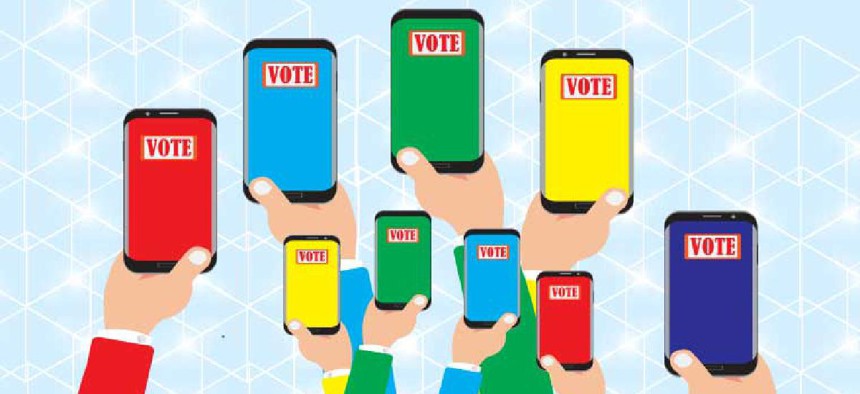West Virginia to expand blockchain-based voting

After a successful two-county test during the May primary election, the West Virginia secretary of state is planning to expand the effort in November.
Blockchain-based mobile voting is another step closer for West Virginia residents serving in the military overseas. In May, the state concluded a successful test of the process in Harrison and Monongalia counties during West Virginia’s primary election.
Now West Virginia Secretary of State Mac Warner is asking counties if they would like to participate in the next round of testing for Voatz’s blockchain-based mobile voting app in November.
“This is all new, and we want to make sure that we get it right,” Mike Queen, deputy chief staff and communications director for the West Virginia secretary of state, told GCN. “Secretary Warner has offered to some other counties who would like to offer it as an option.”
The Voatz app enables military voters who qualify under the Uniformed and Overseas Citizens Act to verify their identities by providing a photo of their driver’s license, state ID or passport that is matched to a selfie. Once a voters' identities are confirmed, they receive a mobile ballot based on the one that they would receive in their local precinct. Queen said the hope is that 10 to 15 counties will participate in this second round of testing.
The goal is to increase the number of options that military voters have to submit their ballots.
“Our process isn’t designed to increase voter turnout, but ultimately, Secretary Warner has charged our team and staff to find a way to make it easier and less cumbersome for military men and women to able to vote,” Queen said.
To verify the levels of security baked into the Voatz platform, four comprehensive audits were conducted during the initial test of the technology in the May election. The audits verified that the blockchain and facial-recognition components were secure enough for the West Virginia Secretary of State’s purposes.
"As with the implementation of all new election technologies, the implementation of mobile voting will be a process," Voatz officials said in a statement. "It is not something that can, nor that we want to, happen overnight."
As the November elections approach, West Virginia is focused on election in other ways as well. In July, the state held its first Elections Security and Preparations Training Conference -- an effort designed to educate election clerks about cybersecurity through mock election preparation and Election Day scenarios that gave attendees practical experience for dealing with unexpected issues.
"The training experience -- using the most advanced training techniques available by the nation’s leading experts in elections -- now has our county clerks as the best trained election officials in the country in the field of election security,” Warner wrote in an op-ed.
NEXT STORY: Vulnerability assessment: How do you rate?





